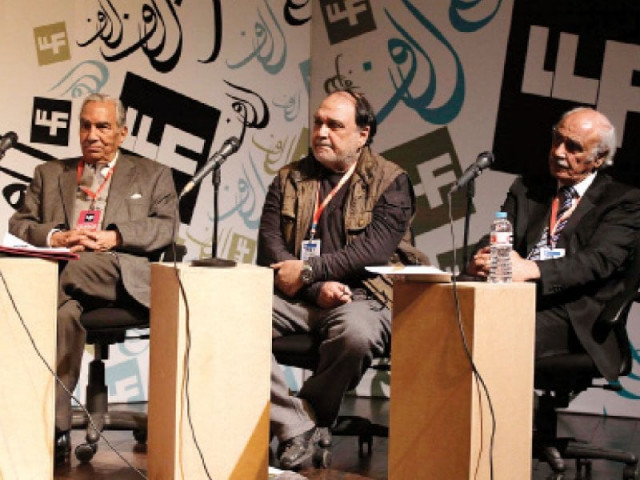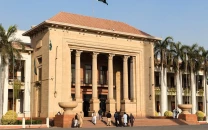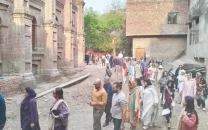Longing for [which] Lahore?
We forgot there were many identities to be dealt with, says Ahmed.

We forgot there were many identities to be dealt with, says Ahmed.
“Lahore’s veins are now constricted. The nostalgia for Lahore’s past is related to its people’s generosity”, said Columnist Khaled Ahmed on Friday.
He was talking at the panel discussion Lahore, Literature and Longing in connection with the Lahore Literature Festival at the Alhamra Art Centre. The discussion was moderated by Majeed Sheikh, and included Aitzaz Ahsan and Pran Nevile.
Ahmed said the nostalgia for Lahore belonged to those who saw the city in the 1950s. He said the longing for Lahore was tied to the Sikhs and Hindus who had inhabited the city before partition. A majority of the population of the inner city was non-Muslim, and the surrounding areas’ population was Muslim, Ahmed said. Due to this, the memory of Lahore as the cultural centre of Punjab was very strong on the other side of the border as well, said Ahmed.
“Once Pakistan was created, we forgot that there were many identities that had to be dealt with”, Ahmed said. He described coming across an Urdu dictionary that proudly stated that it had removed all Hindi words from its contents. Ahmed said Lahore’s reputation fell once it became the seat of Punjab’s power after Ayub Khan’s one-unit policy was instituted.
Ahmed also spoke of the early years of post-partition Lahore which were marked by the Progressive Writer’s movement. He said “This especially excites nostalgia, when the Taliban are on the horizon”
Senator Aitezaz Ahsan, another panellist, said “Lahore as a city has always been a city of resistance. It has faced challenges, it has faced invaders. One of the earliest poets of Lahore was Masood Saas Salman, a poet of resistance. Resistance has been the ethos of the Lahori literary tradition”.
He said the Mughal emperor Akbar had come to Lahore to quell an insurgency of the peasantry who had revolted against heavy taxation.
Ahsan spoke of Lahore as a city of Sufis. He mentioned the significance of Sufi saint Madhu Lal Hussain, had changed the language of the sufis to one of resistance – a continuing theme. He said Lahore had had a tradition of plurality, which was lost first in 1947 when the city lost its Sikh and Hindu inhabitants, and then in the 1980s with increasing discrimination against Christians.
Fakir Aijazuddin said “Nostalgia can doctor history, and tempts us to rewrite it”. He said there were two generations who remembered Lahore very differently, and whose experiences could not coincide. One was the older generation that left for India after partition and the other was the one which never saw pre-partition Lahore. He said it was important to remain optimistic about the future.
Published in The Express Tribune, February 22nd, 2014.



















COMMENTS
Comments are moderated and generally will be posted if they are on-topic and not abusive.
For more information, please see our Comments FAQ